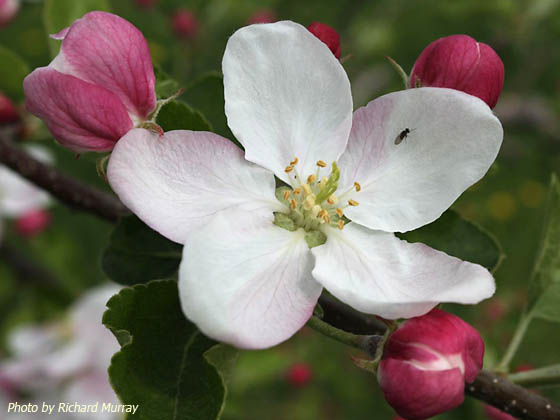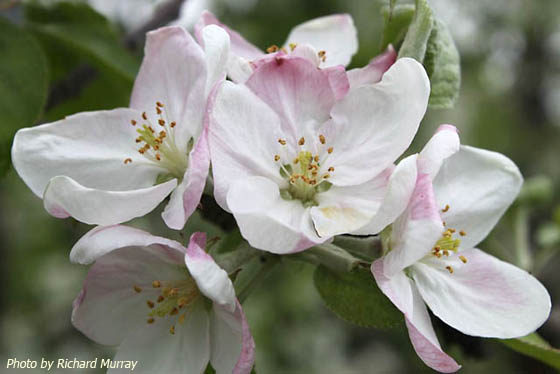home | internet service | web design | business directory | bulletin board | advertise | events calendar | contact | weather | cams

|
Blossom Degrees
Washington State University tracks these ‘blossom degrees’ for more than 18 sites in the state, focused around the irrigated areas of eastern Washington. Lake Chelan is the nearest blossom-degree site to the Methow Valley. A WSU extension agent wrote on March 30: “So far, the 2010-11 winter is very similar to the winter of 1954-55, with a record cold event both in November and late winter….Do not expect an early bloom.”
“They’re about ten days behind average,” Murray said. Wenatchee, which touts itself as “The Apple Capital of the World,” has had a similar lag. Of course, blossom degrees vary not only with weather. They are also very site-specific, depending on elevation, slope, orientation to the sun, wind, etc. Murray made no claim that his fruit tree was the first bloom in the valley. The Twisp River area is one of the later-blooming areas.“Trees in other lower and warmer locations have likely already started blooming,” he said. “I would guess the average first apple bloom date for my orchard is in the first to third week of May,” said Murray. His orchard is two miles up the Twisp River and faces just east of south. Over the last 84 years, the average full bloom date in Wenatchee has been April 27. In the higher, cooler Methow Valley, the average would be later. The blossom date does not predict the ripening date: nature has months to influence the trees.
|
 Fruit
trees need a certain amount of warmth before they bloom
and begin to develop fruit. Scientists-- realizing that
orchardists need to know when their trees will be blooming—have
learned to predict the bloom by counting the number of
daily temperature degrees above 43 Fahrenheit, starting
at the new year.
Fruit
trees need a certain amount of warmth before they bloom
and begin to develop fruit. Scientists-- realizing that
orchardists need to know when their trees will be blooming—have
learned to predict the bloom by counting the number of
daily temperature degrees above 43 Fahrenheit, starting
at the new year.